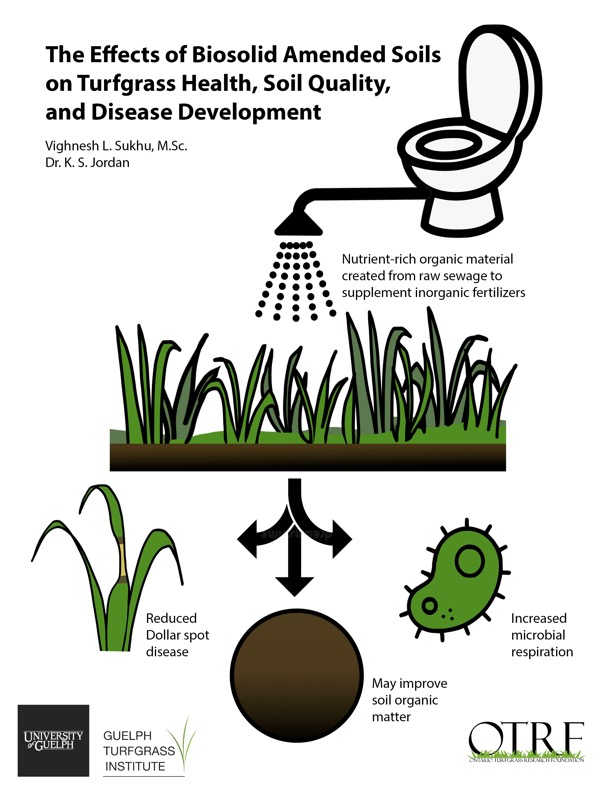"Number Two" makes your turfgrass #1

Researchers at the Guelph Turfgrass Institute and Virginia Tech Turfgrass Research Centre have been thinking about fertilization from the bottom up.
The theory is that if we improve soil health, we can improve turfgrass health. Biosolids are nutrient-rich organic materials produced from the treatment of wastewater (sewage). This is a prime example of, "one person's trash is another person's treasure". What we flush down the toilet after our morning coffee contains nitrogen, phosphorus, copper, magnesium, and zinc. These are all essential for plant growth. A downside to biosolids is their low nitrogen-phosphorus ratio, which might result in an overdose of phosphorus if you apply based on nitrogen content alone. Another concern is the potential to spread human pathogens, so the application of RAW sewage is not recommended (plus, imagine the smell). This research was conducted using the end-product of wastewater treatment after is has been fully disinfected.
This study on tall fescue at Virginia Tech demonstrated that one year after the biosolids-based amendments began, the turfgrass quality was rated higher than chemical fertilizers! The early-spring rating in 2016 was not great for the biosolid treatments, but they perked up for the rest of the season. Additionally, the application of biosolids reduced soil bulk density, which can improve rooting conditions and lead to a denser turfgrass stand. Note that mixing the biosolids with sawdust is not recommended, since it seems to "lock up" or immobilize the nitrogen in the system.
Recent research at the Guelph Turfgrass Institute supports these findings on creeping bentgrass.

As an added bonus, the application of biosolids decreased dollar spot disease symptoms and increased microbial respiration.
Less dollarspot means less fungicides needed, and more microbial respiration means a healthier soil ecosystem.
It's a win-win situation!
To read the full thesis, click here.